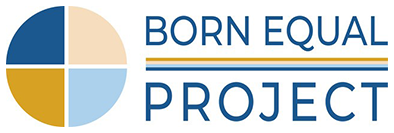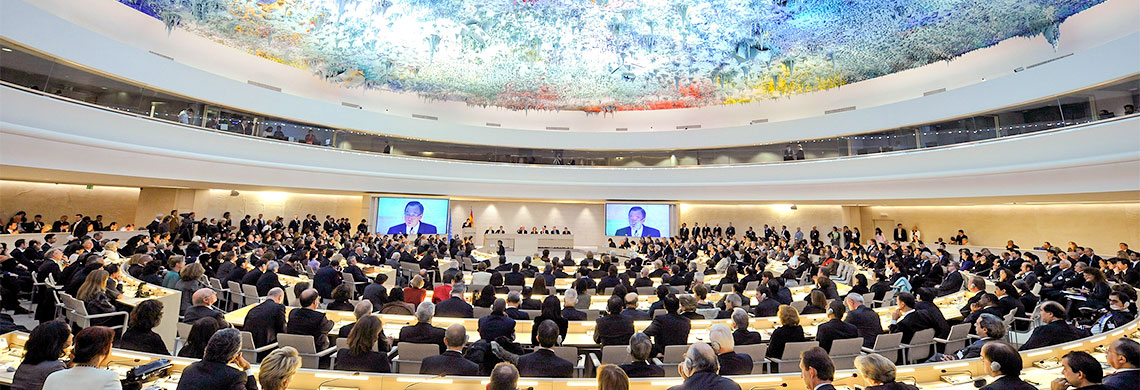The IPAHP Human Rights Program
The Born Equal Project
About the Born Equal Project

The preamble of the United Nations Charter outlines the principle of human equality that has long been recognized by people across the world, but which is all too frequently forgotten and disregarded. Despite the commitment of UN member states to promote equality, discrimination based on gender, race, national origin, cultural background, age, or sexual orientation, as well as other forms of discrimination, remain prevalent across the world. It is in recognition of this inequality that the IPAHP has established the "Born Equal" project.
"Born Equal" is initiative project of the IPAHP that aims not only to raise awareness of discrimination, but also to support a diverse range of activity that promotes equality at different levels, in different regions of the world. The initiative is fully interactive and its goal is to bring together academics, politicians, diplomats, journalists, private sector representatives, civil society practitioners, students and other stakeholders, in support of this cause.
Social and Economic Inequality
Inequality can take many different forms, but is frequently categorized as social or economic in nature. Social inequality is used to describe a situation where members of a society do not have equal social status. For example, some members may not be able to take part in the democratic process equally: to vote, to stand for elections, or to campaign.
Social inequality is also frequently seen in access to public services and treatment by public officials. In its extreme form it may result in certain social groups being denied access to services such as healthcare, or public education, whilst in other societies it may manifest itself in certain social groups being underrepresented in higher quality public educational institutions.
Another key area in which social inequality is visible is in employment. The discretionary nature of hiring and promotional decisions in the private sector means that, despite the best intentions of government regulation, inequality remains. One need only look at the boards of directors at large blue chip companies, or at the make-up of national parliaments in countries across the world, to identify the underrepresentation of women, or of individuals from minority cultures within that country. It is not only in hiring and promotion that inequality remains however, but also in areas such as salaries, holiday allowance, treatment by superiors, and performance-related bonuses.
These examples of inequality are by no means an exhaustive list. Social inequality can take many different forms, and may also be difficult to identify. Decisions by private landlords to only let their properties to certain tenants, of judges to punish certain individuals more harshly than others, or of public service officials to treat some individuals differently, are all much harder to assess objectively, but also further inequality.
The relationship between social and economic equality is complicated and the two issues overlap. Economic inequality refers to the uneven accumulation of wealth in a society. Whilst this is an inevitable feature of modern capitalist societies, there is an increasing understanding that the gap between the rich and the poor is growing exponentially, and that this trend is damaging the fabric of societal relations. Perhaps more importantly, it can be seen that this growing economic equality is in many ways a consequence of social inequality. By preventing certain members of society from having equal access to education, or to employment opportunities, these members are less likely to accumulate wealth, a pattern that then repeats itself in future generations. The focus of the Institute for Cultural Diplomacy is therefore primarily on social inequality, on ensuring people have equal access to the public services they need and rely on, and have equal opportunity to progress and succeed in life. Achieving such social inequality will necessarily help to address the problem of growing economic inequality.
Forms of Inequality
There are many different forms of inequality in societies across the world. The most salient forms identified are inequality based on race, national origin, or cultural background; on gender (for further information on gender inequality please click here); on sexual orientation; on age; or on caste. In some societies the discriminatory treatment of people with certain characteristics may be codified in law. Even in those countries with modern legal systems, however, inequality remains due to demographic and structural factors. Finally, much inequality across the world is the result public attitudes and opinions, the behavior of private citizens in their day-to-day life.
To address the complex issues surrounding the subject of inequality is therefore a task that requires the contributions and cooperation of individuals of diverse cultural and professional backgrounds, from across the world. It is the intention of the ICD to bring together, inspire, and support such individuals in as many different ways as possible. Civil society can provide the momentum needed to ensure states are not allowed to forget the commitments they have made under the UN Charter.


